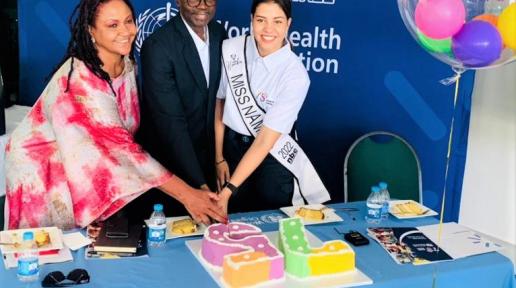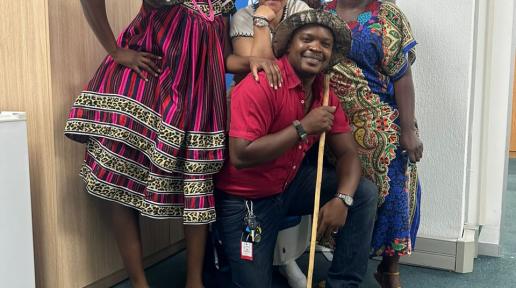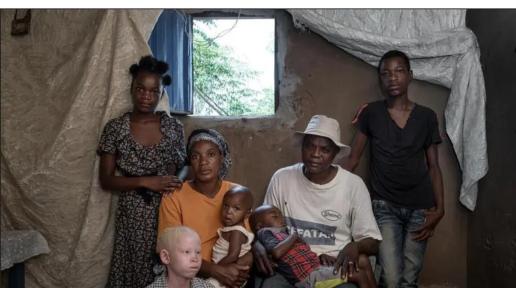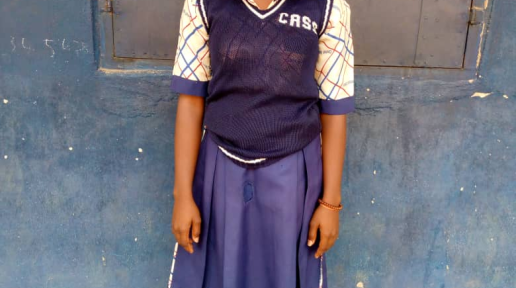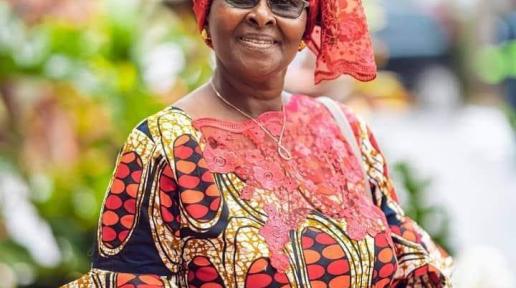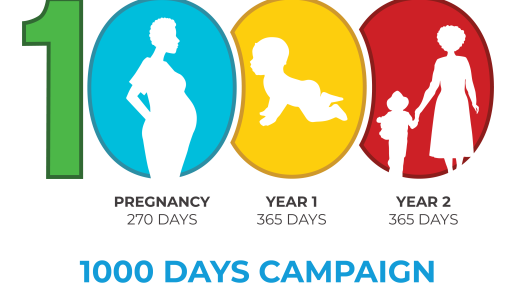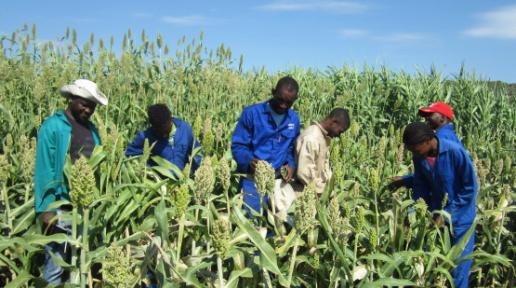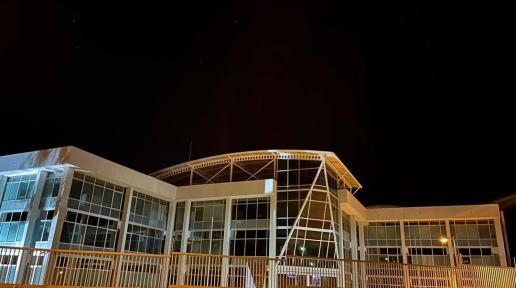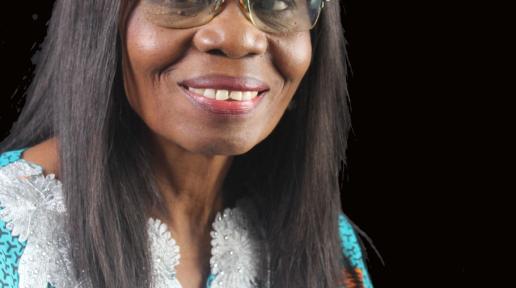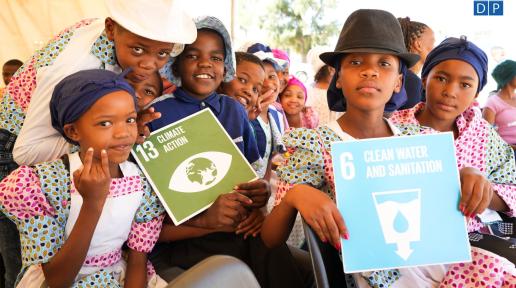Story
20 November 2025
Voices of Hope: Namibia Marks 80 Years of the United Nations Through Stories, Art and Shared Aspirations
Windhoek, 23 October 2025 — Namibia commemorated the 80th anniversary of the United Nations with an evening that placed people, lived experience and shared humanity at the centre. Namibia’s commemoration forms part of the global UN80 milestone, marking eight decades of international cooperation and nearly 35 years of partnership since Namibia’s independence. The celebration at the Namibia Institute of Public Administration and Management was organised and artistically directed by the Ombetja Yehinga Organisation (OYO), a long-standing UN partner known for using art as a catalyst for social change. The organisation’s contribution extended far beyond event design. OYO’s performers delivered powerful, emotionally resonant pieces that transformed the themes of dignity, equality, and shared humanity into movement, storytelling and visual art. Their performances grounded in real-life experiences of young Namibians deepened the evening’s message, using dance, theatre and creative expression to illuminate the values of the UN Charter in ways that words alone could not.The event opened with reflections of Namibians from across the country, honouring progress, confronting challenges, and imagining a fairer future.Through the short-film series 80 Voices for 80 Years, Namibians spoke candidly about the journey the country has travelled since independence and the role the United Nations played in supporting peace, rights and nation-building. Speakers reflected on how international solidarity and democratic freedoms helped secure independence and laid a foundation for opportunity. They pointed to gains in education and health, especially for young people and rural families, as evidence that hard-won freedoms have translated into improved lives for many. “We have free education now… more opportunities for everybody, especially people in rural areas.” Watch the voices of progress →https://youtu.be/ce4X_5KS3ZI But their reflections were not only celebratory. Many expressed concerns about the risks of losing momentum, warning that without continued commitment to development, inequality could widen and social challenges deepen. Participants spoke about fears around access to quality education, food security and health, particularly for children, rural communities and persons with disabilities. Their messages underscored that progress remains fragile and that sustaining peace and development requires ongoing investment in people and systems. “If quality education is not there, then more poverty will be there and of course there will be an increase in crime.”Hear their concerns and warnings →https://youtu.be/eznES2Lov7Y Hope, however, was the prevailing note. Speakers envisioned a Namibia where every person has the chance to thrive — where poverty is eradicated, schools and hospitals serve all communities, and justice and opportunity are accessible to everyone. They spoke not only of dignity but of empowerment, describing a future where communities are equipped to create their own prosperity and where equality is not aspirational, but lived.“A good justice system means safety and assurance… prisons will be empty, and happiness will prevail across the country.”This reflection was deeply symbolic, suggesting that an empty prison represents far more than the absence of crime. It embodies a vision of a society where people are empowered through decent work, peace, and shared wellbeing, where dignity and opportunity allow every person to thrive.Watch their hopes for the future → https://youtu.be/_PDfTBOlUZo These aspirations set the stage for the evening’s performances, conceptualised and brought to life by the Ombetja Yehinga Organisation (OYO). Under OYO’s creative direction, a dynamic mix of young artists and performers used theatre, dance, and film to translate the values of the UN Charter into emotion and movement. The performances echoed themes of belonging, equality, and resilience. Sebito and Chicken celebrated disability, pride and self-determination. Nythen Dien’s “Be a Man” challenged harmful expectations placed on boys and young men, while Roya Diehl’s “Be a Lady” amplified the strength and rights of women and girls. Felicity’s “Dusty Feet” honoured rural dignity and perseverance, and a school choir brought the evening to a close with a stirring call for unity and a brighter tomorrow. Together, these artistic expressions affirmed a simple truth: progress is not measured only in policy frameworks or development plans but in whether every person feels seen, safe, respected and able to build a meaningful life.In her remarks, Honourable Selma Ashipala-Musavyi, Minister of International Relations and Cooperation, reflected on Namibia’s historic bond with the United Nations, describing the nation as “a proud product of international solidarity, proof that multilateralism delivers peace, dignity and progress.” She emphasised Namibia’s continued leadership in peace, education, gender equality and climate action, while highlighting the importance of supporting both girls and boys to build a balanced and inclusive future.United Nations Resident Coordinator Hopolang Phororo reaffirmed the UN’s commitment to a people-centred renewal. “The United Nations is evolving, becoming more agile, responsive and accountable. We must remain a living promise for the people whose lives depend on us.” She underscored Namibia’s global role, including its co-facilitation of the Summit of the Future, and emphasised the partnership under the United Nations Sustainable Development Cooperation Framework (UNSDCF) 2025–2029 as a pathway for inclusive, nationally led development.As the programme concluded, guests remained to share impressions and reflect on the stories, performances and messages that had filled the room. The atmosphere was warm and informal, marked by a sense of pride in how far Namibia has come and clarity about the work still ahead.Rather than looking back alone, the commemoration pointed firmly toward the future. It reminded all present that the story of the United Nations in Namibia is written in classrooms, in communities, in rural settlements and in the aspirations of young people who believe in fairness, dignity and opportunity. It is a story rooted in solidarity and carried forward by hope and determination.The sense of forward momentum was unmistakable, grounded in the belief that young people will shape Namibia’s next chapter, and that progress must reach everyone, everywhere, leaving no one behind.


